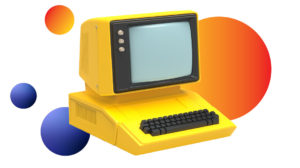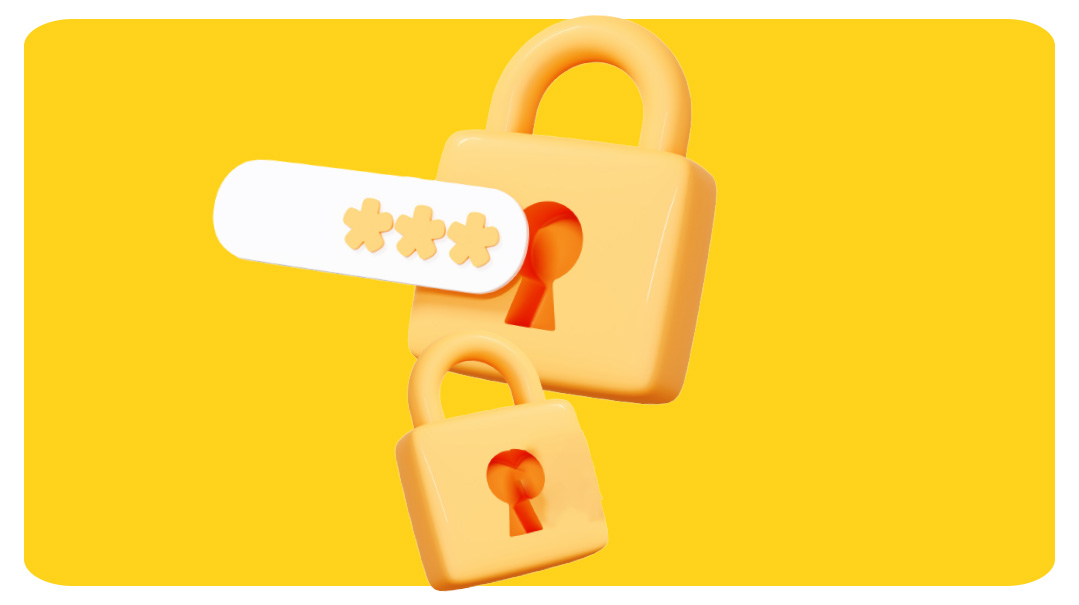Tech Wire: In Memoriam

John McAfee created the ubiquitous antivirus software that pops up in the corner of your screen letting you know that it’s expired and your computer is at risk

If you’ve been near a computer anytime over the past 20 years, you definitely know the name McAfee. John McAfee created the ubiquitous antivirus software that is probably popped up in the corner of your screen right now letting you know that it’s expired and your computer is at risk. He recently died in Spain at the age of 75 while waiting to be extradited to the US on tax evasion charges. While he was no longer associated with his eponymous company (he sold his shares in 1994) he still is one of the OGs of cybersecurity.
New(ish) App Alert
I know we’re all Zoomed-out and nobody wants to hear about it anymore, but even with pandemic restrictions lifting, remote work and Zoom meetings are likely here to stay. If you’ve ever missed a presentation and got the replay or wanted to review a meeting, you know how tedious it is to go through the file (even if you’re like me and play it on fast-forward). Ziotag, newly available on Zoom marketplace, makes this all a lot easier. Using AI and NLP (natural language processing) it transcribes meetings, creates tables of contents, and lists keywords so it’s way easier to navigate and find the information you need. Presenters can even consider reverse engineering their presentation, throwing what they have out there, and seeing what organization structure the program assigns to it.
Take or Create a Course with KnowTheTerrain.io
You know what they say — the minute you stop learning is the minute you stop growing. And that’s especially true in business. KnowTheTerrain.io is a fairly new platform that’s trying to provide high-quality business courses while eliminating the marketing aspect for course creators.
Many popular business courses are marketed well, but contain little actionable content. KnowTheTerrain offers several free half-hour masterclasses, so I took one (watched at 2x speed) to see if they deliver on value. My verdict: Yes, and now I know how to run Facebook ads. The quality of the video wasn’t very high, but the quality of the content was excellent.
The current offerings on KnowTheTerrain are not robust yet (the marketing world is heavily represented), but it looks like they’ve built a platform for growth and community. The courses are priced at an average $147 (if you know pricing, that 7 is key. Yes, I’m being a little facetious) but it’s a wide range from $52 for “Project Planner for Freelancers” to $1,395 for “The Digital Media VA Crash Course.”
If you’re the course-creator type, it’s free to create on the platform but there’s a 25 percent cut of your profit (steep, I know, but they do all the marketing and hosting). They also vet all their course creators, so it’s not a free-for-all platform. For potential users who are looking to up their game in marketing skills and other entrepreneurial mindset type things, it’s definitely worth checking out. (The free courses I plan to take next are “Antatomy of the Perfect Blog Post” and “5 Things to Know about Pitching the Media”).
Can You Fix It? Yes, You Can!
Congressman Joseph Morelle of New York has introduced legislation supporting the Right to Repair. This would make it easier for consumers to fix their technology without paying more to original manufacturers. He wants spare parts to be available for all types of technology support and technicians, not just authorized dealers. This would bring down costs (repairs often cost almost as much as a new device) and increase convenience.
Technology companies are obviously resistant, citing trade secrets and intellectual theft concerns, though most people consider those to be unfounded.
Don’t Come Along for the Ride
If you don’t follow the news, you might think China is a wonderful place for business and investment, but the Communist government there is continuing to infringe on private enterprise. DiDi, the ride-hailing app that went public on the New York Stock Exchange at the end of June, was cited by the Chinese government as having vague violations in the way it collected and utilized user data. Consequently, the Chinese government halted downloads of 25 of DiDi’s apps. Obviously, this affected their stock value and scared off investors. DiDi’s issues are not yet resolved, nor does there seem to be a clear path forward. Many are looking at this chain of events as a warning of the Chinese government’s interference with and opposition to free enterprise.
Slowing You Down
You’re not crazy, your phone is slow. Check your apps — the ones that can run functions in the background can slow down your phone. The most demanding functions are camera, location, microphone, and Wi-Fi, so if an app is requesting access to that, put your antennas up.
With this in mind, it’s easy to see that social media networks are going to impact the speed of your phone. Transportation apps like Uber and Lyft also use a lot of memory. It’s interesting to note that Microsoft Teams consumes 232.2 MB while Zoom comparatively uses 81.2 MB. Fitbit, Verizon, Uber, Skype, and Facebook round out the top five worst memory consuming apps. To solve this, consider either deleting the app and only using it on a desktop, or disable features you don’t need, like location sharing or camera, depending on the app.
(Originally featured in Mishpacha, Issue 871)
Oops! We could not locate your form.













